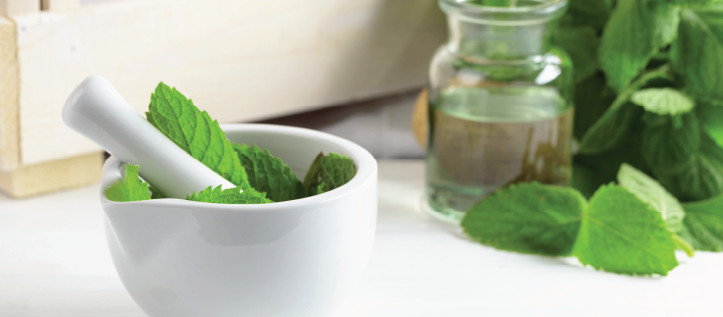5 Natural Remedies for Toothaches

A toothache is a sign that something is wrong, so seeing your dentist is necessary. But there are some natural remedies that you can try until your appointment. Below are five at-home tricks that might bring you some much-needed relief.
Apply Some Clove Oil to the Affected Area
Okay, we know that this sounds pretty weird, but clove oil might be able to numb the pain of your toothache. That’s because the main chemical compound that is found in cloves is eugenol, which is a natural anesthetic that numbs nerves. And, believe it or not, clove oil might be just as effective as the numbing ingredient known as benzocaine, which is found in toothache gels sold over-the-counter. Who knew, right?
You can find clove oil at a health food store, and all you need is just a few drops. To use this oil, soak a cotton ball with it and gently dab the oil against the tooth that is aching. Use this oil carefully, though, as it might make the pain worse if it ends up on a sensitive area of your gums or on your tongue. You could also dilute it with a bit of olive oil to reduce its intensity, if necessary.
Rinse Your Mouth with Salt Water
You’ve heard of gargling with salt water when you have a sore throat, but did you know that you can also rinse your mouth with a bit of saltwater to get some pain relief when you have a toothache? It’s true! This homemade mouthwash could help clear away any debris irritating your teeth and gums. Plus, by drawing out excess fluid from the gums, it might also reduce any swelling that you might be experiencing.
Use about 8 ounces of warm water and about ½ teaspoon of salt to thoroughly rinse the mouth for roughly 30 seconds before spitting it out. You can do this as often as you need to throughout the day.
Use Some Tea for Your Teeth
If you already like peppermint tea, this solution will be super easy for you. Thanks to its slight numbing ability, peppermint tea might be able to help soothe your aching tooth. Or you could go with black tea instead because there are astringent tannins within it, and they might help to reduce any pain that is the result of swelling within the mouth.
To make your peppermint tea, you can place 1 teaspoon of dried peppermint leaves in a cup of boiling water. Allow the leaves to steep for roughly 20 minutes. Once the tea is cool, you can rinse your mouth with it and then either swallow it or spit it out. If you are planning on using black tea, you can simply apply a wet, warm tea bag against your tooth instead.
Place a Cold Compress on Your Cheek
Applying a cold compress to your cheek might help alleviate the swelling and pain within superficial nerves. If you don’t have a reusable cold compress that you can purchase at your local pharmacy, you can instead wrap some ice around a towel or put some ice into a plastic bag and then wrap a cloth around it.
All you have to do is place the cold compress on the cheek area over your toothache. You definitely don’t want to apply it directly to your teeth (ouch!). Leave the compress on for a few minutes at a time, such as for about 15 minutes.
Swish Some Hydrogen Peroxide in Your Mouth
Rinsing your mouth with a 3% hydrogen peroxide solution might help to reduce your discomfort, as well as eliminate bacteria. Try this remedy if you also have a foul taste in your mouth or a fever that accompanies your toothache, as those symptoms indicate that there is likely an infection.
Be careful, as you don’t want to swallow the hydrogen peroxide. Instead, dilute it with some water, swish it around in your mouth, and spit it out. Then clean your mouth by rinsing it a few times with water.
Time to See Your Dentist!
Just remember that these natural home remedies might give you some short-term pain relief, but your dentist will be able to get to the root of the problem and provide you with the appropriate treatment to make you all better.
To prevent your condition from worsening, book your appointment as soon as you start feeling a toothache (with a Spirit dental plan, there aren’t any waiting periods). Experts also recommend that you keep seeing your dentist regularly for checkups to catch signs of cavities or gum disease as soon as possible.
